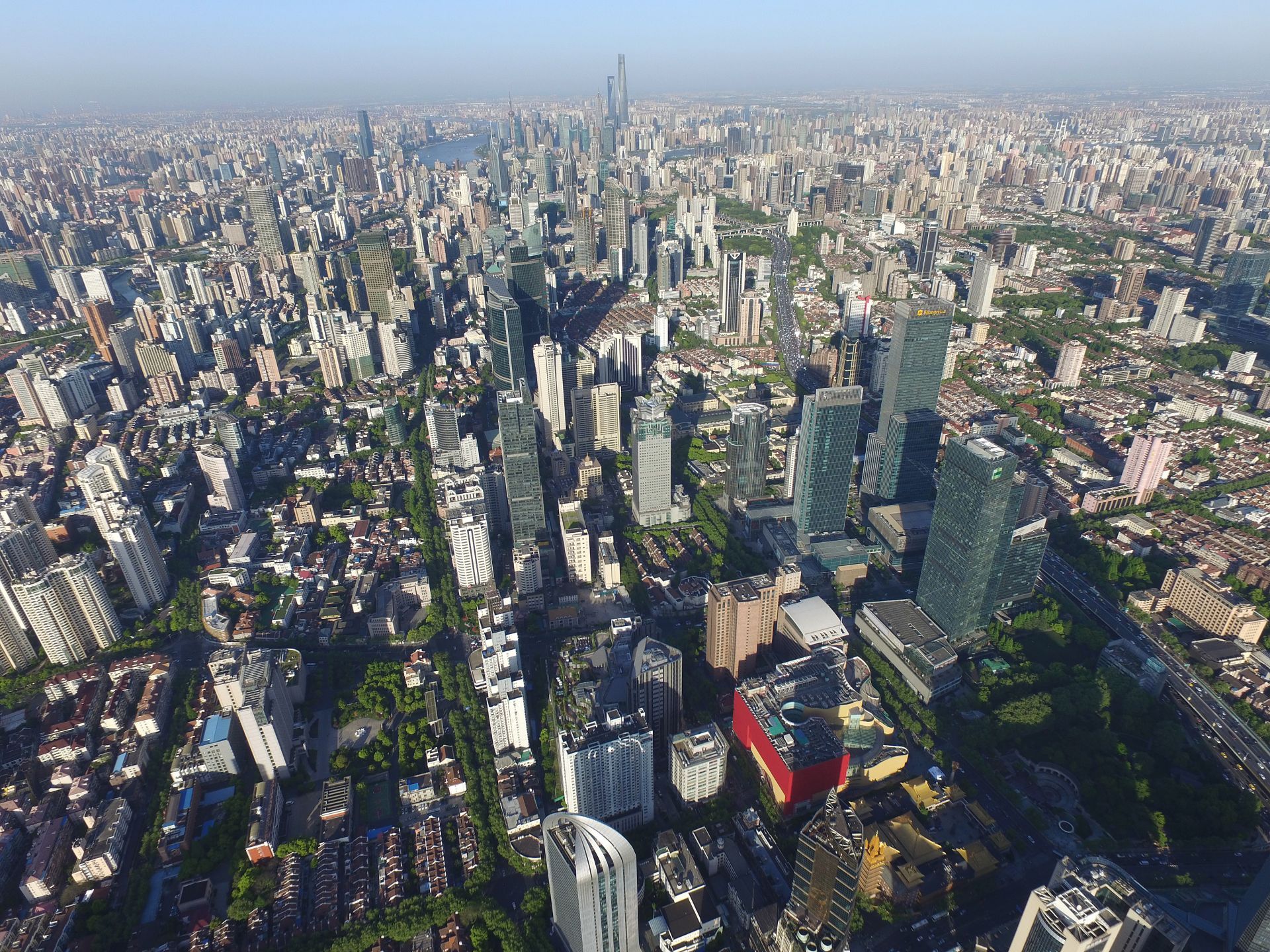
Photo: a bird’s-eye view of downtown Jing’an, a district with its sights set high
Despite being one of the smallest districts in Shanghai, Jing’an District is home to 80 regional headquarters, accounting for nearly 12 percent of the city’s total. Why is that? A primary factor: efficient services.
This month, the district announced plans to become a global service provider to entice more multinational companies to set regional headquarters here and to help domestic brands expand overseas.
To achieve that, Jing’an says it will attract major global consulting firms, law offices and other services industry leaders. That means both domestic and overseas companies will be able to enjoy one-stop, world-class services.
The district says it hopes to add at least 10 such service companies and more than five new multinational regional headquarters a year.
“We always believe that government serves companies and companies serve the globe,”says Zhou Haiying, deputy director of Jing’an.
The first step in the campaign is the introduction of a 24-hour services station.
The eight-square-meter cube station is in a corner of the first floor of Park Place on Changde Road, where 41 companies set up offices -- 40 of them foreign.
Equipped with technologies such as facial recognition and footprint scanning, the station provides more than 200 services, related to everything from personal business to corporate affairs. Answers to questions are just a quick call from phones there.
The station is designed to serve four local office buildings, says Huang Yongqian, deputy director of Jing’an Investment Development Office.
Among the first group of users was Qinyi Management Consulting Co. He Guangbin, a staff member of the company, used the firm’s business license and other documents scanned in the station to obtain a USBkey, which is necessary for the company to do electronic commerce.
“Previously, we had to visit the administrative affairs center to apply for it, and it usually took us two to three days,” he says. “But now, we don’t have to stand in queues, and everything can be processed here in just several minutes.”
Chen Jiaxin, from L’Oréal China, went to the station during her morning break to check the status of the housing fund.
“It’s as convenient as a self-service bank,” she says.
According to Huang, express delivery service will be available in the near future.
“Not everything can be done through the online platform,” he says. “Sometimes, duplicates of forms and documents are required to be sent on to other authorities for further approval. So, we allow people to lock the documents in safety deposit boxes installed in the station, and we arrange deliverymen. Clients are kept informed through short messages.”

Photo: a woman processes information at the 24-hour services station in services
Jing’an has gathered together 20 service organizations listed under the Globalization and World Cities Research Network, an organization that studies the relationships between world cities in the context of globalization.
The network keeps a list of reputable service providers, and Jing’an has a third of such providers in Shanghai. They include consultancy Bain, accounting firm KPMG, advertising agency J Walter Thompson, law firm Jones Day and bank BNP.
Jing’an is also home to China’s first national-level human resources industrial park.
Being internationally friendly is a prime talking point in Jing’an’s efforts to attract and keep overseas talent and foreign company offices.
“Shanghai is portal city where foreign companies enter China and domestic companies expand into overseas market,” Zhou says. “Jing’an, as one of the most international districts in China, should play a pioneering role and use its advantages to support the city’s campaign to become a major global center.”
Jiang Hao, vice president of the China office of German consulting firm Roland Berger, said professional talent is always concerned about living conditions, convenient transportation and incentive policies.
“Authorities should make their needs as a top priority and create a great ecosystem based on their needs,” he says
By the end of 2022, services provided by the government will all be bilingual. Major communities and public venues will provide such language assistance to make foreigners feel welcome and at home.




 A single purchase
A single purchase









